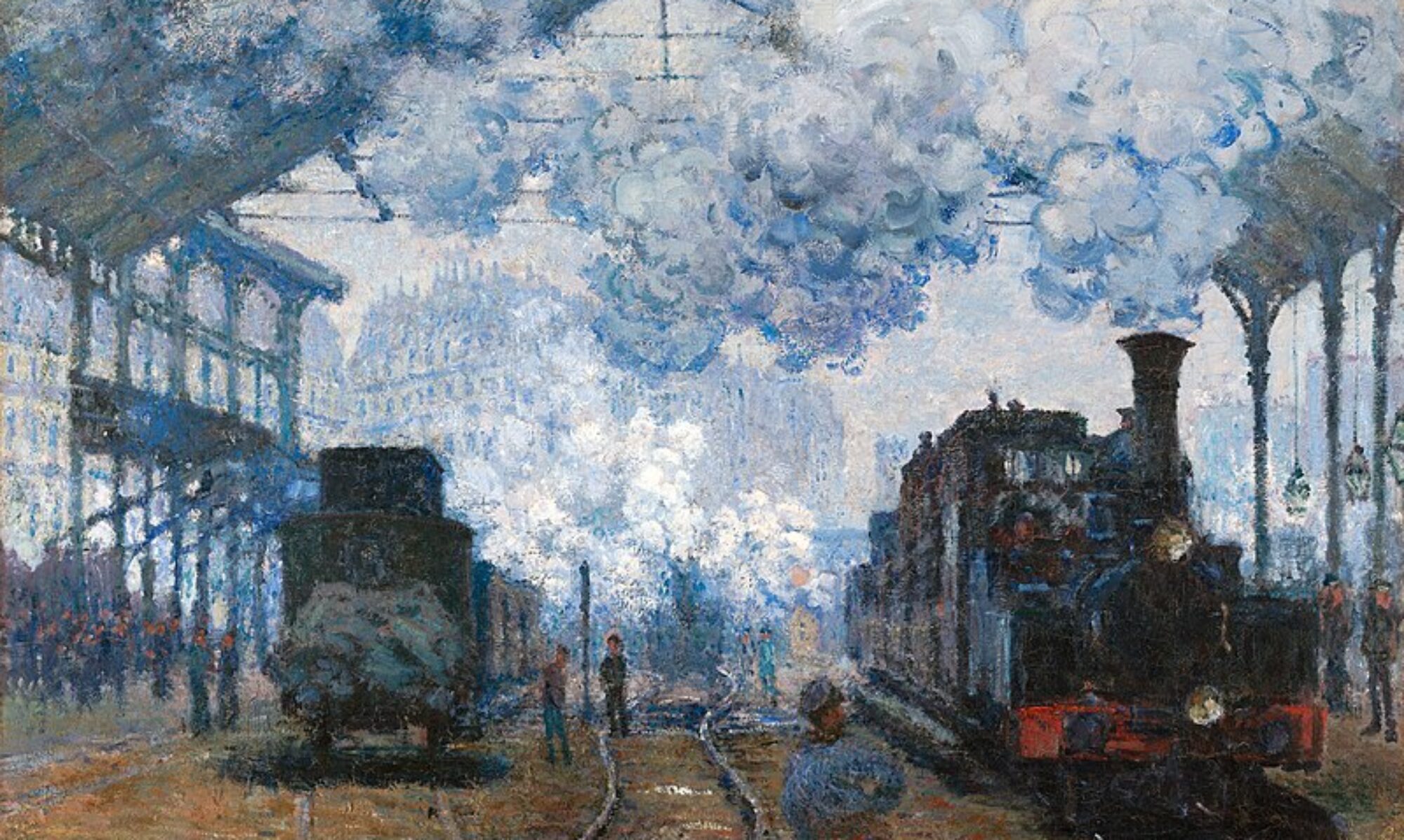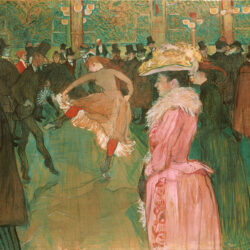In “The Judgement” the protagonist Georg is portrayed as someone who deeply cares about those around hi. He takes good care of his father, and he is very sensitive to his friend’s desperate situation in Russia. While taking care of him, Georg’s father tells Georg that he had secretly been writing to his friend for the 3 years that he was away, telling him everything happening in Georg’s life. He also accuses Georg of being a poor caretaker and trying to kill him. He sentences Georg to a “death by drowning”, which prompts Georg to kill himself. “With weakening grip he was still holding on when he spied between the rails a motor-bus coming which would easily cover the noise of his fall, called in a low voice ‘dear parents, I have always loved you all the same,’ and let himself drop” (Kafka 88). Georg’s father is clearly abusive, but do you think that it was his father’s harsh words alone that drove him to kill himself, or were there other factors to his death, like missing his dead mother or his long gone friend? If you think that Georg killed himself because of his father only, was it being he was afraid of him, thought that he was unappreciative of his care, or something else?
Male Jury
In Emmeline Pankhurst’s “Speech from the Dock”, she says that women should not be brought upon a jury of men for committing a crime that men cannot understand. She says, “women are brought up for certain crimes, crimes which men do not understand- I am thinking especially of infanticide- they are brought before a man judge, before a jury of men, who are called upon to decide whether some poor, hunted woman is guilty of murder or not” (470). This is a strong argument that is relevant even today, and Pankhurst makes a great argument that it is questionable how much merit a decision made by a jury of men on a crime which they do not understand, as Pankhurst puts it, really has. Do you think that Pankhurst would be satisfied by the jury of men becoming more educated on the crime before they show up in court, or do you think she wants them excluded from the case all together? Whichever point you think she is trying to make, do you agree with it?
Dream Interpretation
In Sigmund Freud’s dream about Irma, he tries to blame her illness on Otto. When he is interpreting the dream, he says that this reflects a hidden desire to cast blame on other people in order to avoid responsibility. His interpretation is an explanation for the dream, but it is not fact. Not only does the dream depend on the individual dreaming it, but the interpretation depends on them too. In the end of his dream analogy, Freud says that everyone’s dreams are based on wish fulfillment, but this is just based off of the dreams that he has. “The dream represented a particular state of affairs as I should have wished it to be. Thus its content was a fulfillment of a wish at its motive was a wish.” (140). Do you think that the interpretation of someone’s dream should be left to that person alone, or can other people like Freud that did not experience the dream come up with a better formula for dreams? Does Freud’s interpretation of his dream make it more valuable than any other person’s since he was the one who dreamt it?
Christianity in Africa
Chapter 16 of Things Fall Apart explains the involvement of the Christian missionaries in the village. They say that they are there to teach them about the real God, and that the gods that they worship are false gods. “And he told them about this new God, the Creator of all the world and all the men and women” (145). The missionary then says that in order to be saved, they must turn to the real God in order to be saved. “We have been sent by this great God to ask you to leave your wicked ways and false gods and turn to Him so that you may be saved when you die” (145). Christians have been involved in Africa for a while, and their involvement can be seen as both good and bad, depending on the viewpoint. If the intent of the missionaries is to save the villagers, then their involvement can be seen as for good, but it can also be seen as imperialistic. In more recent years, Christians have combined their beliefs with charity work in the form of mission trips, but even that has controversy surrounding it. Many Christian organizations have donated to African villages with the intent to do good, but by flooding the market with their donations (for example, shoes), they are hurting private businesses in the village that make shoes for a living, and in extreme cases, even putting them out of business. While some of their early charity work does unfortunately end up hurting village economies, many organizations have adapted their strategies in order to help develop the economies, instead of accidentally making them dependent on handouts. By doing good work for African villages in more recent years, have Christians made up for their past mistakes in Africa, or should they never have been involved in the first place?
Declaration of Principles
Throughout “Duties to Country”, Mazzini makes some points that would lead the reader to think that he was an ally to the working class of Italy. He talks about the poor social conditions of the working class, but the quote that caught my attention is when he says “Your emancipation can have no practical beginning until a National Government, understanding the signs of the times, shall, seated in Rome, formulate a Declaration of Principles to be a guide for Italian progress, and shall insert into it these words, Labour is scared, and is the source of the wealth of Italy” (283). While the idea that labour is sacred does sound like progress for better conditions for the working class, the other parts of this quote suggest that this might not be the case. By saying that labour is the source of Italy’s wealth, Mazzini is encouraging more hours for these workers that are already pushed to their limits. Right before this quote, he also says that “The economic problem demands, forth and foremost, an increase in capital and production” (283). Both of these statements by Mazzini suggest that in order for Italy to get wealthy, the working class must be given more hours than they are already suffering through, so this idea that “labour is scared” seems like it will do more harm than help to the working class, but do you think otherwise?
The Success of Revolutions
While 19th century Europe was filled with many revolutions, they all had different results and levels of success. Some revolutions, like the French Revolution of 1848, resulted in the overthrow of a monarch. However, others like the Budapest uprising in 1848 Hungary were suppressed before they could become significant. “Although the ensuring revolution was ultimately crushed…” (page 419). The fact that there were so many revolutions during the 19th century, along with the varying degree of success among all of them, raises the question, is there a specific formula to a successful revolution, or is it just a matter of some armies acting quick enough to suppress the revolution before it can begin?
The Birth of Great Events
At the beginning of chapter 1, Alexis de Tocqueville states that major events like the February Revolution were based on accidental causes. “In common with all other great events of this sort, the February Revolution was born of general causes fertilized, if I may put so, by accidents” (page 62). While many sparks to revolutions or other “great events” may be spontaneous, it seems like a very bold statement to say that the revolution’s causes are made from accidents. In the paragraph following this quote, de Tocqueville talks about the industrial revolution. Do you think that the industrial revolution fits his category of a great event with causes made by accidents? What do you think his definition of a great event is? Do you agree that the February Revolution was based on causes made by accidents?
Is the Ability to Disprove Finite?
In his argument for the importance of the opinion, Mill brings up the fact that as time moves forward, opinions are constantly proved wrong and rejected by the future. He points out that each age in history has had what was once thought to be certain knowledge disproven by the following ages, claiming that “every age having held many subsequent ages have deemed not only false but absurd; and it is as certain that many opinions, now general, will be rejected by future ages…” (page 25). With the movement of time, there will always be new knowledge to uncover, but whether or not Mill’s argument will still be valid is questionable. As time progresses, will human knowledge reach a certain point of perfection so that past opinions can never again be disproven?
German Nationalism from the Jewish Population Achieves Little
“They have fought both as conscripts and volunteers in proportionate numbers within the ranks fo the German forces” Readings in Western Civilization chapter 8 (page 156). “They” referring to the German Jewish population, who despite volunteering in the German militia and fighting alongside the rest of the country, were not considered German citizens. The Jewish population in France had a similar story fighting in the French Revolution, but they ultimately gained citizenship through extensive debate in the National Assembly. The divide between the bourgeois and working class following the French Revolution, along with the disregard of the German Jewish population after they fought in the militia, raises the question, is it in the nature of the bourgeois to cast aside the lower classes after they fight together to achieve a common objective?
Coppelius vs Olipmia
In “The Sandman”, Nathaniel is tormented through his entire life by the lawyer/ peddler Coppelius, but during his studies away from home, he is meets Olimpia, his professor’s daughter. It turns into a “too good to be true” story as he begins to fall in love with the most beautiful “woman” he has ever met. Both of these entities play a part in Nathaniel’s eventual demise, but which one played the larger role in his downfall? Was it Coppelius, who tormented Nathaniel for his entire life and was present at his death, or Olipmia, whose bloody eyes rolling across the professor’s floor ultimately sent him into madness?

